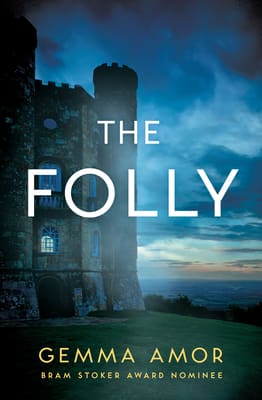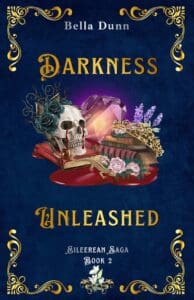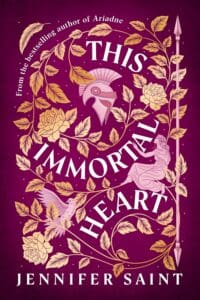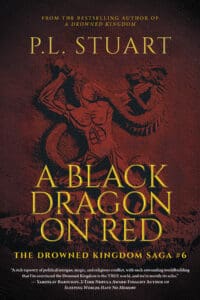
Synopsis:
Morgan always knew her father, Owen, never murdered her mother. She has spent the last six years campaigning for his release from prison. Finally, mid-pandemic, Owen is set free, but the debt-riddled pair can no longer afford (or bear) to live in the family home- a house last decorated by a dead woman’s blood.
Salvation and the chance for a new start in life comes in the form of a tall, dark and notorious decorative granite tower on the Cornish coastline known only as ‘The Folly’. The structure is empty, prone to break-ins, and the owner needs a caretaker- food and bills included. It’s an offer too good to refuse. Morgan and Owen relocate, leaving everything of their former lives behind and hoping that a change of scene and the remote location will be good for them both.
At first, the Folly is indeed idyllic, but soon enough that peace is shattered when a bald-headed stranger arrives. A stranger who acts like Morgan’s mother, talks like her mother, and wears her dead mother’s clothes. What does he want? Why won’t he leave them alone? Why does he keep mentioning the year 1976?And what secrets does the Folly tower hold?
Review:
As somebody who, 4 years post COVID, can not smell anything, and has a drastically altered sense of taste (garlic bread just tastes like…bread), books that tackle the pandemic are ones that I appreciate. It’s not something I’m ready to forget yet. “The Folly,” by Gemma Amor is a fine example of this, dripping with eeriness. It’s a meditation on memory and grief and betrayal, as well as a study of the social angst and financial fallout that came with living in lockdown, and persist. Packed with scenes that made my heart lurch and my stomach lunge, “The Folly,” is gothic and gross and generally quality. A suitably chilly piece of coastal horror, Amor creates a wave of unease that briefly laps at your ankles before pulling you wholly into the cold, dark undertow. Since I finished it a few days ago it has crawled into my brain and decided to self-isolate there for the foreseeable future, a few landmark scenes that absolutely made me cringe seem to just replay endlessly. Should you want to subject yourself, “The Folly,” was reissued by Datura in November, thank goodness.
We follow Morgan who, following the murder of her mother, and the unjust imprisonment of her father, has been campaigning for his release. Often anticipation is the best part of any experience, and after 7 years, the reunion between father and daughter is strange, strained, different. Things become further strained when Morgan tells him that they’re moving. Leaving the house. That house. The house in which she was raised, the house in which a happy couple once lived, the house in which her mother’s life came to a brutal end. She is broke. In a brilliant stroke of luck, the two move to Cornwall, in which “A folly” needs guarding. The two live rent free in it, on the caveat that they keep any trespassers at bay, and whilst the structure has a strange history, it’s truly ideal for Morgan and her dad. Until it’s not.
The only thing more scary than thinking you recognise somebody and waving at them only to realise that you do not, is a stranger insisting that they recognise you. This is the first of many scenes that scared the ever-loving fuck out of me. I was NOT having fun. I listened to this one on audiobook, and I can’t say for sure whether it was the fact it was read aloud to me, or the sure-fire innately terrifying nature of “The Folly,” but it’s by no means hyperbole when I tell you that my palms were slick, my stomach was free-falling and I am not okay.
“The Folly,” is almost a liminal space- a place that is built only for aesthetic purposes. It has no function. It was built before major roads were, it is literally located in the middle of a field, when Morgan gets food delivered she has to make quite the trek, because the drivers can’t get that close to the building. It goes without saying that the feelings of isolation and entrapment are amplified and underscored by the ongoing lockdown.
“The Woman in Black,” by Susan Hill, meets Jeff VanderMeer’s “Annihilation,” in this short, sharp little novella. Uncanny and existential, “The Folly,” is timely in its writing yet sharply contemporary in its context, marrying gothic unease with relevant fears and raw anxieties. The quiet, intimate horror of familial trauma crescendos quickly into something Freudian and cyclical, and overwhelmingly… just wrong. Chilling, cerebral and unforgettable, this pilgrimage to the South West of England that you should all be making.










Leave a Reply